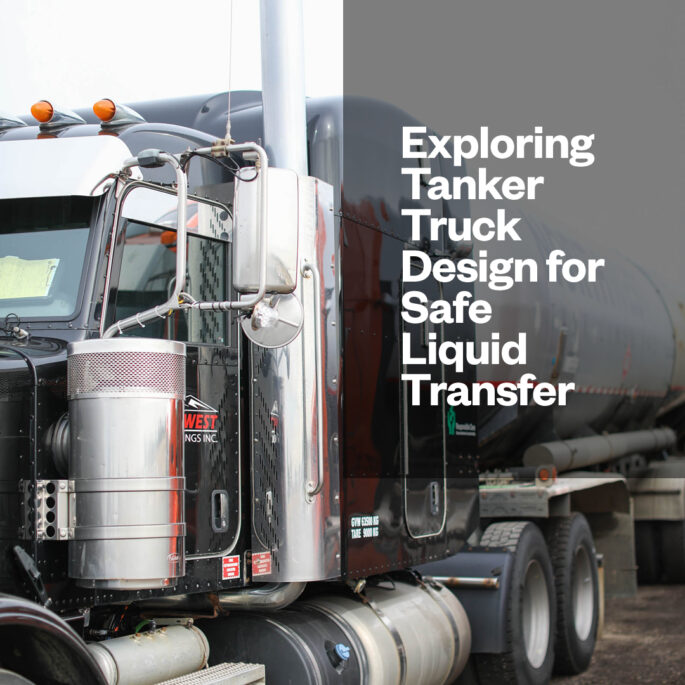Tank trailers are an integral part of the transportation industry, responsible for the safe transfer of various products such as Natural Gas Liquids (NGL), molten sulphur, and chemicals. The engineering and design elements of tank trucks play a crucial role in ensuring the safe and efficient transfer of these liquids. Safety isn’t just a feature, it’s the driving force behind every tank truck at Northwest. In this article, we will delve into the science of tanker trailer design and explore the various features that make liquid transfer safe and reliable.
Fundamental Principles of Tanker Trailer Design
Materials and Construction
The materials and construction of tank trailers are critical in ensuring the safe transportation of liquids. The tanks are typically made of high-strength steel, aluminum, or stainless steel, depending on the type of liquid being transported. The thickness of the tank walls is also an essential factor in ensuring the structural integrity of the tank. Thicker walls are required for transporting hazardous liquids, such as NGL and chemicals, to prevent leaks or ruptures in case of accidents, as well as ensuring the barrels can withstand the amount of pressure it takes to haul these products.
Tank Geometry and Structural Integrity
The geometry and structural integrity of the tank are also crucial in ensuring safe liquid transfer. The tanks are designed to withstand the stresses and strains of transportation, including the weight of the liquid and the vibrations from the road. The shape and size of the tank is also an important factor in ensuring the stability of the vehicle during transportation. The tanks are typically cylindrical or elliptical, with a low center of gravity to prevent rollovers. The tanks can also be equipped with baffles or partitions to prevent the liquid from sloshing around during transportation.
Safety Features and Standards
Adherence to safety standards is non-negotiable at Northwest Tank Lines. We go above and beyond what is legally required to ensure our tank trailers are equipped with an array of safety features, including pressure relief valves, emergency shutoff valves, and spill containment systems. Regular inspections ensure that these features are kept in optimal working condition, providing an additional layer of safety and reliability to liquid transportation.
Chemical Compatibility
Efficient chemical transfer is paramount to safety, and Northwest Tank Lines employs various engineering and design elements to achieve this. Careful consideration is given to the materials used in tank construction, seals, hoses, and other components to ensure compatibility with a wide range of chemicals. Extensive testing is conducted to guarantee that the tanks are resistant to corrosion and chemical degradation.
The engineering and design of tank trucks are crucial for ensuring the safe, efficient movement of liquids. Factors such as the choice of materials, tank configuration, structural integrity, and compliance with safety standards are vital. At Northwest, our focus on precision engineering, strict adherence to safety regulations, and utilization of advanced technology guarantee the secure and effective transportation of liquids. This commitment places us at the forefront of safeguarding the integrity and safety of liquid transport, emphasizing our dedication to environmental responsibility. Haul with us today and experience the Northwest difference.

